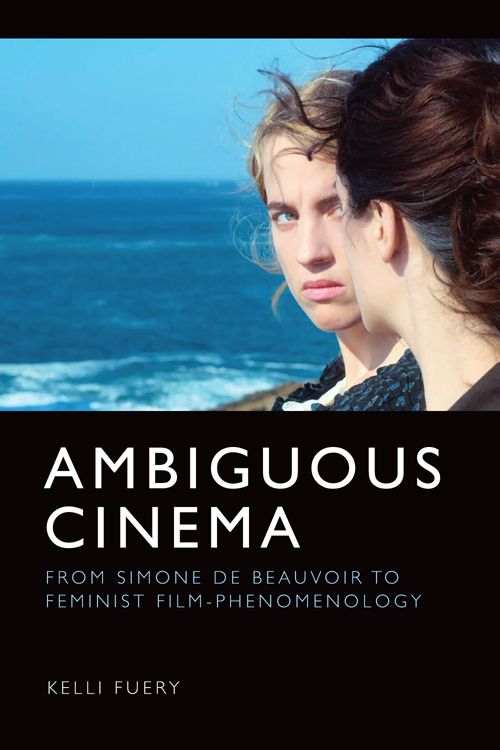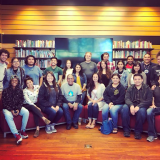
Faculty Book: Ambiguous Cinema
February 23, 2024
 The concept driving Dr. Kelli Fuery’s (Creative and Cultural Industries) latest book, Ambiguous Cinema: From Simone de Beauvoir to Feminist Film-Phenomenology (Edinburgh University Press) originated from one of her Film Theory classes when she and her students were discussing theories of spectatorship.
The concept driving Dr. Kelli Fuery’s (Creative and Cultural Industries) latest book, Ambiguous Cinema: From Simone de Beauvoir to Feminist Film-Phenomenology (Edinburgh University Press) originated from one of her Film Theory classes when she and her students were discussing theories of spectatorship.
“While many students were familiar with the ‘male gaze’ as coined by Laura Mulvey, they did not know much about Simone de Beauvoir, who she was, or why her philosophy has been so influential for the development of gender politics that lie at the heart of Mulvey’s famous paper, and which also informs much of feminist film theory. In many ways, Beauvoir has been the unsung foundation of this field,” she said.
The field of film-phenomenology responds to the paradigmatic shifts of culture and its histories. Without a solid foundation and grasp of the theoretical works themselves, it becomes very difficult to see the relevance of why theory is transformative for audiences. And so, this is how and why Ambiguous Cinema was born. “I wanted to write a book that brought Beauvoir back to life for my students and in such a way as to showcase her relevance, her limits, and her legacy.”
The Voice of Wilkinson sat down with Dr. Fuery to discuss her book.
Voice of Wilkinson: We know the book is focused around Simone de Beauvoir’s writings for cinematic thinking, while researching this book, was there anything you learned about Beauvoir that surprised you?
KF: Beauvoir wrote a lot. Either she didn’t take kindly to edits (unless they came from philosopher Jean-Paul Sartre) or she committed wholly to phenomenology’s method of description, reducing every experience down to its minutiae, determining its essence (I think probably both!). I was surprised that this formidable thinker, who influenced so many other important artists, scholars, philosophers (Agnes Varda, Germaine Greer, Judith Butler, Sara Ahmed, Frantz Fanon, etc.) has been left out of contemporary film and cultural studies syllabi.
VoW: I can tell how passionate you are about the book and this topic. Did you have fun writing this book?
KF: Yes, what I enjoyed most was putting Beauvoir in conversation with contemporary feminist philosophers such as Gloria Anzaldúa, Mariana Ortega and María Lugones and finding connections to thinkers outside the field. This is really important for students as well – to see that in order to develop interdisciplinary thought, you have to venture beyond your specific field. The philosopher Alia Al-Saji and feminist political science scholar Lori Marso were both very influential for me in forging these connections.
VoW: What do you hope your students will gain from reading your book?

Dr. Kelli Fuery.
KF: My hope is that readers will see that while I’ve picked a number of my favorite films, they were also intentionally chosen for being stories which emphasize ambiguity in women’s situations. Ambiguity doesn’t only exist for women or in these specific examples, rather it occurs constantly within the human condition. I would love to hear how these ideas lead readers to think of their own examples and tell me what films highlight ambiguity for them.
The point of focusing on Beauvoir’s idea of ethical ambiguity, and its relationship to film experience, was to remind us of the link between freedom and responsibility, where the facts of the external world meet and impact upon our individual sense of self. Films are stories, but they are not just stories. Not all films do this obviously, but some help us work through difficult and demanding situations we can’t think of easily ourselves.
VoW: What’s next for you?
KF: My next book, Film Phenomenologies: Temporality, Embodiment, Transformation, is an edition collection, exploring classical and critical approaches, identifying the importance of difference in perception regarding film experience, and offers a highly interdisciplinary collection of distinguished authors, who consider diverse themes such as feminist time, disability, Black lived experience and the human and non-human.

